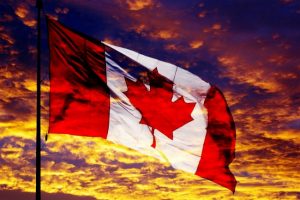 A great number of Canada’s casinos are operated by the Canadian federally recognized tribes, also known as the First Nations communities. They have the exclusive right to run gambling properties on First Nations reserves, which are also open to crowds. Online gambling is the industry’s fastest-growing sector. Most of the land-based casino operators are eyeing the opportunity to go also online.
A great number of Canada’s casinos are operated by the Canadian federally recognized tribes, also known as the First Nations communities. They have the exclusive right to run gambling properties on First Nations reserves, which are also open to crowds. Online gambling is the industry’s fastest-growing sector. Most of the land-based casino operators are eyeing the opportunity to go also online.
First Nations communities in Atlantic Canada, on the other hand, have a different stance on the matter. Earlier today, the media agency The Chronicle Herald reported that the First Nations communities in Atlantic Canada are to stay away from online gambling and there is a good reason for that. The former chief of the Tobique First Nation in western New Brunswick Gerald Bear made it clear that the reason for the First Nations communities not to embrace online gambling is not that they do not want to, but that they are unable to do so.
Mr. Bear explained that the First Nation communities signed deals with Atlantic Lottery that operates gambling activity for the provincial governments of New Brunswick, Nova Scotia, Prince Edward Island and Newfoundland and Labrador. Under this agreement, the Canadian tribal nations are allowed to offer video lottery terminals (VGTs) to their gaming commissions. But to win this right, the tribal nations had to sacrifice their right to handle gambling operations in their own communities, including online gambling.
This means that the First Nations lost their right to offer online gambling, originally granted by the Treaty and Aboriginal statutes in the Canadian Constitution. The lawyer for the Kahnawake Gaming Commission, Murray Marshall told the reporters that the 21-year old Kahnawake Gaming Law has been challenged only once so far, but that case did not discuss First Nations jurisdiction over gambling within their own reserve in Quebec.
Highlights from the Canadian Law
 Under the Canadian law, the players are allowed to gamble online, but the law does not say anything about the offshore operators’ right to accept Canadian players. But that is not a problem for the Kahnawake commission, which allowed Kahnawake First Nation community to operate 99 online gambling websites. Marshall commented that the commission is allowed to issue an unlimited number of licenses to online gambling websites.
Under the Canadian law, the players are allowed to gamble online, but the law does not say anything about the offshore operators’ right to accept Canadian players. But that is not a problem for the Kahnawake commission, which allowed Kahnawake First Nation community to operate 99 online gambling websites. Marshall commented that the commission is allowed to issue an unlimited number of licenses to online gambling websites.
It was reported that the commission had an annual revenue of approximately $796,000 in the Mohawk Council of Kahnawake for the last fiscal year. The commission’s lawyer refused to specify how much of the revenue came from online gambling activities, but Marshall took the opportunity to add that the gambling has decreased the unemployment rate, creating 250 new jobs.











